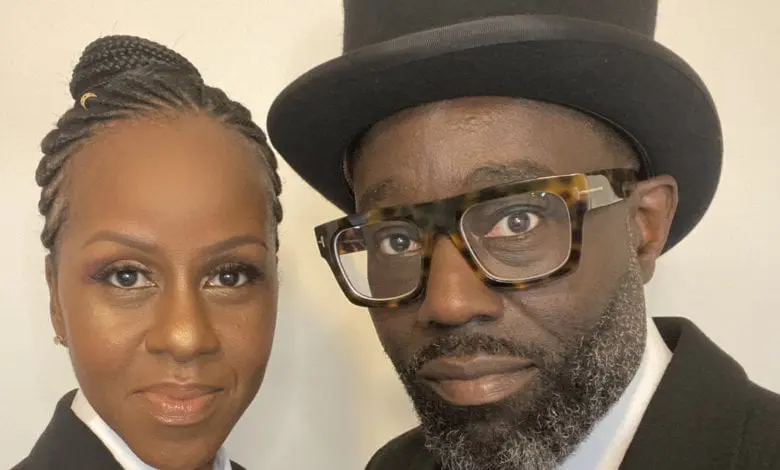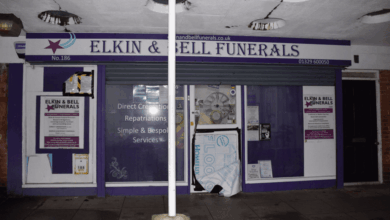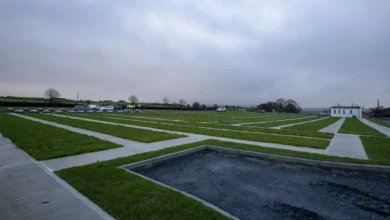We need to talk more
Paul and Sharon McLean of Integrity Funeral Care on how the industry could do more to encourage people to discuss death with their loved ones and let their wishes be known.

Register to get 1 free article
Reveal the article below by registering for our email newsletter.
Want unlimited access? View Plans
Already have an account? Sign in
There are probably few people in the world more at ease than funeral directors when it comes to talking about death.People in general don’t like to think about it. Their own mortality is a frightening thing. The deaths of those they love are too painful to contemplate.
Death is a bit like a trip to the dentist. Nobody wants to go or even think about it and they put it off as long as possible but eventually there’s just no choice. Isn’t it time we as a profession mounted a campaign to encourage people to have those difficult conversations they dread?
How many times do we engage with families who have not the slightest idea about the wishes of their dearly departed? I doubt if there are statistics for it, but I would venture to guess maybe 50% of people don’t even know whether their life partner favours cremation or burial. How many people leave instructions about the kind of service they want, the music they would choose, even the people they would want to invite?
There’s a saying among staff at the wonderful Marie Curie charity which aims to help people who are dying and their families. They say: “Expectant mothers are actively encouraged to have a birth plan, so why don’t people have a death plan as well?”
The funny thing is, when there is a commercial incentive we as a profession have shown ourselves to be pretty good at getting people to listen to us. The evidence for this is clear when you take a look at the state of the funeral plan market. According to the consumer research and ratings agency, Fairer Finance, sales of prepaid funeral plans grew by more than 350% between 2006 and 2016.
In 2006, annual sales stood at just 46,340. By 2017 that figure had reached a whopping 210,000. What’s more, there are in excess of 1.2 million live funeral plan holders with funds under management estimated at a value well beyond £2bn.
One has to ask, if all these people are persuaded of the value of a product which will cover at least some of the costs of their funeral, how simple ought it to be to convince them also to jot down a few instructions as to what form that service should take? Goodness knows we’ve all been in a position of virtually acting as a referee when distraught families fall out over, “what Mum would have wanted.” Isn’t it time we persuaded people that all that pain can be avoided?
And while we’re on the subject to talking to people, I also think we as a profession could engage more actively with those people most likely to recommend us to people in need of our services; priests, pastors and ministers.
Integrity Funeral Care specialises in providing support to the Afro-Caribbean community in London. As with different religious or ethnic groups, there are traditions within our community which differ somewhat from the time-honoured British way of doing things. We often have a pre-funeral wake-type event called Nine Night – historically on the ninth night after death. Our church services tend to last a lot longer and involve a great deal more participation from the congregation in terms of readings and particularly music. We also have more music and longer involvement at the graveside itself. Perhaps the most significant difference is that funerals are likely to take place as much as four or six weeks after death, partly because of the desire of relatives living outside the UK to come to take part and show their respects.
Some ministers are very familiar with these traditions while others are less so, and it is so important to have those conversations before planning gets fully underway to ensure that the family’s wishes can be accommodated at a particular church.
It’s also a matter of respect.
Ministers are a fundamental part of what we do, and we rely on them to look after a bereaved family with as much care as we would wish to ourselves. They all have their preferences and pet hates. If a funeral is to proceed as seamlessly as it should, there needs to be some clear coordination between what they do and what we do.
During these times of Cpvid of course the relationship between minister and funeral director has to be closer than ever before, particularly when it comes to limits on numbers in church or at the graveside. But even with no pandemic, it’s really important to find out what they prefer. We may, for example, arrive at a cemetery ready to bring the casket to the graveside or even to lower it before the service begins.
I know some ministers who really don’t like doing things that way, and would prefer the coffin to stay in the vehicle until the moment in the service when they are ready for it to be brought and lowered in one action. At the end of the day, they are the ones in charge of proceedings and it’s only courtesy to find out their wishes in advance.
If I’ve failed to persuade you that our profession needs to talk more to people, I leave you with this:
According to the insurer, Sun Life*, in 2020, just 32% of people said they knew for sure whether their loved ones wanted to be buried or cremated. Some 26% reckoned they knew what their other half’s preference would be for music or readings if at all. And just 14% knew who they’d want to invite to the funeral.
And if that’s not proof enough, the song most frequently played at funerals last year was Amazing Grace. BUT.. when people were asked what they would actually like to hear played at their funerals the runaway number one choice was…Always Look on the Bright Side of Life.







